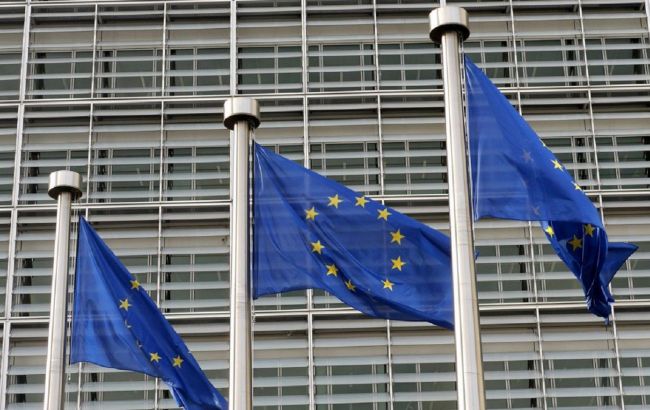European Commission names amount of aid provided to Ukraine in 2023
 Photo: European Commission has disclosed the amount of aid provided to Ukraine in 2023 (flick.com/libereurope)
Photo: European Commission has disclosed the amount of aid provided to Ukraine in 2023 (flick.com/libereurope)
Today, on December 29, the European Commission released data on the assistance provided to Ukraine in 2023 of humanitarian, financial, political, and other kinds, according to its post on X.
The statement emphasizes that the EU's support for Ukraine is "as strong as ever."
"Russia’s war of aggression continues to cause devastation in Ukraine. We stand united in our unwavering support to Ukraine, stepping up our political, humanitarian, financial and military support to the country in 2023," the statement says.
The European Commission disclosed that the assistance to Ukraine from the bloc includes:
Political support:
-
Agreeing to open accession negotiations with Ukraine,
-
Renewing the suspension of all customs duties on Ukrainian exports,
-
Signing Ukraine’s association to the Single Market Program,
-
Exporting over 110 million tonnes of grain and goods via Solidarity Lanes.
Humanitarian support:
-
Allocating €200 million in 2023 for humanitarian aid programs,
-
Delivering 98,000 tonnes of in-kind assistance,
-
Providing €88 million and 370+ buses to help ensure safe access to education,
-
Extending the Temporary Protection Directive to March 2025.
Financial support:
-
Providing a support package of €18 billion in 2023, on top of €7.2 billion in 2022,
-
Making available €40.6 billion since the start of the war to support Ukraine's overall resilience.
The European Commission also added that they will continue to provide support to Ukraine "for as long as it takes."
Allocating €50 billion from the EU
It is worth recalling that last year, the European Union proposed allocating €50 billion to Ukraine by 2027. To approve such a decision, the consent of all member countries is required. However, during the recent session, Hungary vetoed this proposal.
The matter of aid to Ukraine will be discussed at a separate EU summit in early February. Member countries are also considering the possibility of depriving Hungary of its voting rights to approve the funding.
As previously mentioned by the Minister of Foreign Affairs, Dmytro Kuleba, the EU will ultimately approve funding with or without Budapest's agreement. He is sure that Ukraine will receive assistance, despite the uncertainties.
Recently, a spokesperson for the Federal Ministry of Foreign Affairs of Germany stated that the EU will continue to support Ukraine, despite resistance from Hungary. Other member countries may act independently even without Budapest's approval.

